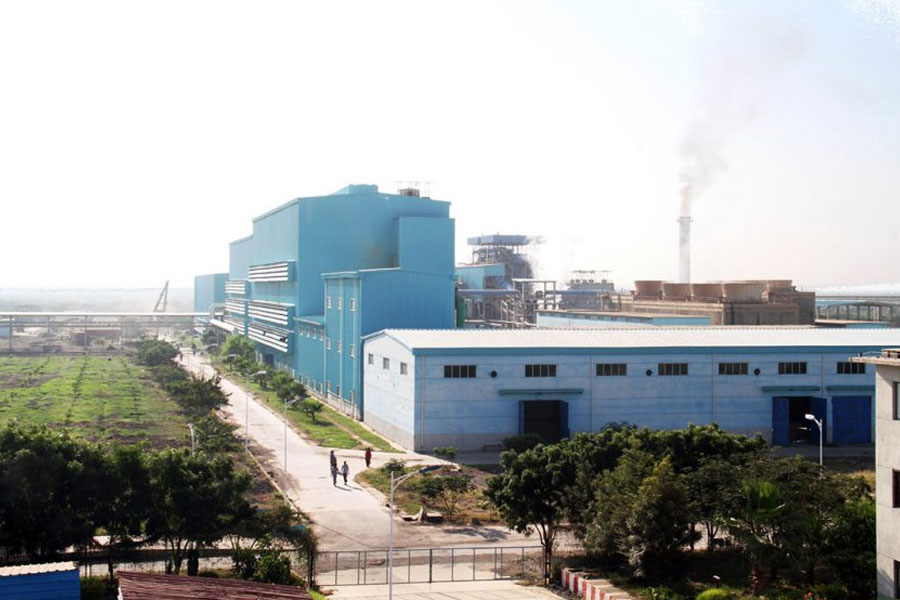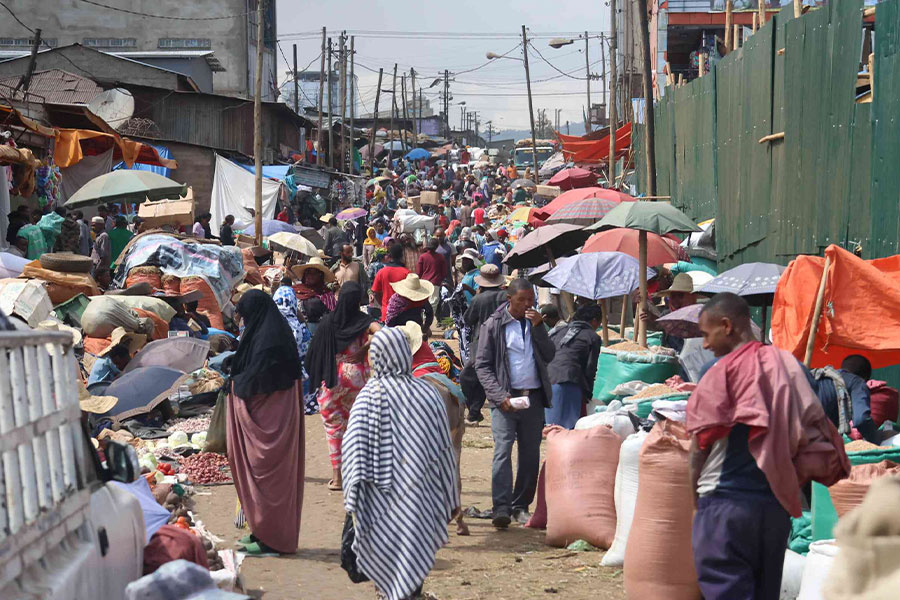
Fortune News | May 14,2022
Aug 7 , 2021.
There are a few without an opinion on Ethiopia’s federal structure, which is arranged along lingo-cultural faultlines. Despite popular perception, though, not all the regional states have structured strictly along these faultlines. Three of the 10 regional states - the southern, Benishangul-Gumuz and Gambella - do not fall along with the lingo-cultural formation of a singular group they comprise. They are multi-cultural. This makes the experiment of Ethiopia`s federalism a hybrid.
Nonetheless, it is admired as a genius formula for managing diverse identities just as it is reviled as the source of all evil in the country. Conflict of views under any setting - country, company or family - is inevitable and necessary to growth. The key is knowing how to acknowledge it to ensure the best idea wins the day without overflowing into a bloodbath. It is conventional knowledge that peace comes by recognising and managing the conflicts steaming from diverse interests, if not identities.
This nuance is lost on Ethiopia’s political elite. Sadly. The extreme politicisation of diversity has overshadowed the federal structure’s greatest attribute: its role in fiscal decentralisation, however the public chooses to arrange the regional states.
Renewed hope that reforms to imbue regional and local governments with greater economic power have come recently. It is acclaimed as the first since the Constitution established the federal structure, with the administration of concurrent taxation. The federal and regional governments have concurrent powers of taxation, but this has lacked implementation due to a lack of clarity on revenue mobilisation and expenditure between them. A bill by the Ministry of Revenues to harmonise working procedures between federal and regional governments on revenues collection provides a legal framework on the role of the respective authorities. It aspires to create accountability and transparency between the agencies.
Formalising concurrent taxation is critical, especially for the regional bureaus, to audit just how much taxes are collected and they receive what they are owed.
Less consequential but also pertinent is the manual developed by the Federal Planning & Development Commission to help regional states compile and help standardise their gross domestic product (GDP) computations. This would help improve the administrative capacity of regional governments, whose spending and the economic activities they oversee is heavily clouded. A detailed breakdown of the regional states` annual spending and revenues collection should be a click away on the internet. According to the World Bank’s Public Expenditure & Financial Accountability (PEFA) assessments for regions, fiscal information is either poor, unpublished or published late.
The logic behind improving such economic and administrative power of regional states and local administrations is clear enough. The most critical is accountability. If this can be achieved, to an extent, by horizontally separating the powers of government into the legislative, executive and judiciary powers, it should also make sense to create checks and balances between the different levels of the state, from the Prime Minister’s Office and parliament to wereda councils. The latter should not be mere administrative arms of the former but empowered institutions able to check the decisions made from the top and hold them accountable in revenues collection and expenditures.
Local and regional governments are also better placed to recognise the priorities of areas under their administrations. They can better reflect the interests of taxpayers and compete in the delivery of public services with one another to attract businesses and mobilise more revenues. A good example of this is, ironically, China. Despite being notorious for its political centralisation, regional fiscal decentralisation allowed experimentation and competition between provinces. One such experimentation was in Shenzhen, China’s special economic zone, and subsequently went on to be promoted by the central government for the rest of the country.
The main argument against such a system in Ethiopia is the lack of administrative capacity, which could run sub-national governments into budget deficits. This had already happened last year when the Southern Region State nearly ran itself into bankruptcy as administrative costs went into the roof for its ever-growing number of weredas and zones, as well as six vice presidents, all in service of meeting political quotas. It is a worrying problem, but only if the Fed fails to discourage fiscal indiscipline. A sub-national government under such straits should not be bailed out, free of the consequences, by the federal government. It should be loaned funds to keep public services running, with an equal amount deducted from the next year’s federal subsidy. That is what the federal government does in anyways.
Strong institutions that deliver public services and invest funds in productive endeavours are necessary to both regional and local governments for this not to happen. There are capacity-building programmes, especially for the agricultural sector, including from institutions such as the World Bank. But the institutions would not reach their potentials unless the federal government become less paternalistic, dictating terms and running roughshod of their own plans. With greater fiscal autonomy, regional states can responsibly experiment more, and through trials and errors, they can gradually stumble upon a development path that makes them competitive.
Fiscal decentralisation does not stop there. Given Ethiopia’s short history of experimenting with federalism, it has seemed that power could be distributed further from the federal government to regional states. But it needs to be brought even closer to citizens, to the cities, zones and weredas. Here again, it would only be realising the promises of the constitution.
The local government is the closest and most accessible part of the state, and as such, are better placed to deal with local issues, from access to basic services to help businesses thrive. This is especially the case for cities and towns which are seeing their populations explode as they become home to more and more people across the country. This has been the whole point of holding separate elections for local governments because they are deemed instrumental in representing citizens' wishes.
This, too, should change. It can start by being more respectful of local elections, which have not taken place since 2013. Ironically, local elections are not mentioned these days, not even by the opposition parties. With Addis Abeba and Dire Dawa only having elected city councils, the economic importance of local governments has been devalued. Regional states are blamed for this - the constitution does not say how local governments should be arranged or when elections should take place.
In parts of the country such as the South, weredasand zones seem to be created at a whim. In nearly every other regional state, the structure and governance of cities depend on regional governments' political decisions. Autonomy suspended at regional state levels means critical agents necessary for improving public services provision, bringing to the ground economic development and ascertaining fairer distribution of wealth, being left out of the equation.
PUBLISHED ON
Aug 07,2021 [ VOL
22 , NO
1110]

Fortune News | May 14,2022

My Opinion | Jan 22,2022

Fortune News | Nov 27,2021

Fortune News | Oct 12,2019

Advertorials | Aug 10,2023

Fortune News | Jun 14,2020

Fortune News | Jul 09,2022

In-Picture | Jun 21,2025

Fortune News | Jun 29,2019

Fortune News | Apr 22,2022

My Opinion | 131499 Views | Aug 14,2021

My Opinion | 127855 Views | Aug 21,2021

My Opinion | 125833 Views | Sep 10,2021

My Opinion | 123463 Views | Aug 07,2021

Dec 22 , 2024 . By TIZITA SHEWAFERAW
Charged with transforming colossal state-owned enterprises into modern and competitiv...

Aug 18 , 2024 . By AKSAH ITALO
Although predictable Yonas Zerihun's job in the ride-hailing service is not immune to...

Jul 28 , 2024 . By TIZITA SHEWAFERAW
Unhabitual, perhaps too many, Samuel Gebreyohannes, 38, used to occasionally enjoy a couple of beers at breakfast. However, he recently swit...

Jul 13 , 2024 . By AKSAH ITALO
Investors who rely on tractors, trucks, and field vehicles for commuting, transporting commodities, and f...

Jun 29 , 2025
Addis Abeba's first rains have coincided with a sweeping rise in private school tuition, prompting the city's education...

Jun 29 , 2025 . By BEZAWIT HULUAGER
Central Bank Governor Mamo Mihretu claimed a bold reconfiguration of monetary policy...

Jun 29 , 2025 . By BEZAWIT HULUAGER
The federal government is betting on a sweeping overhaul of the driver licensing regi...

Jun 29 , 2025 . By NAHOM AYELE
Gadaa Bank has listed 1.2 million shares on the Ethiopian Securities Exchange (ESX),...